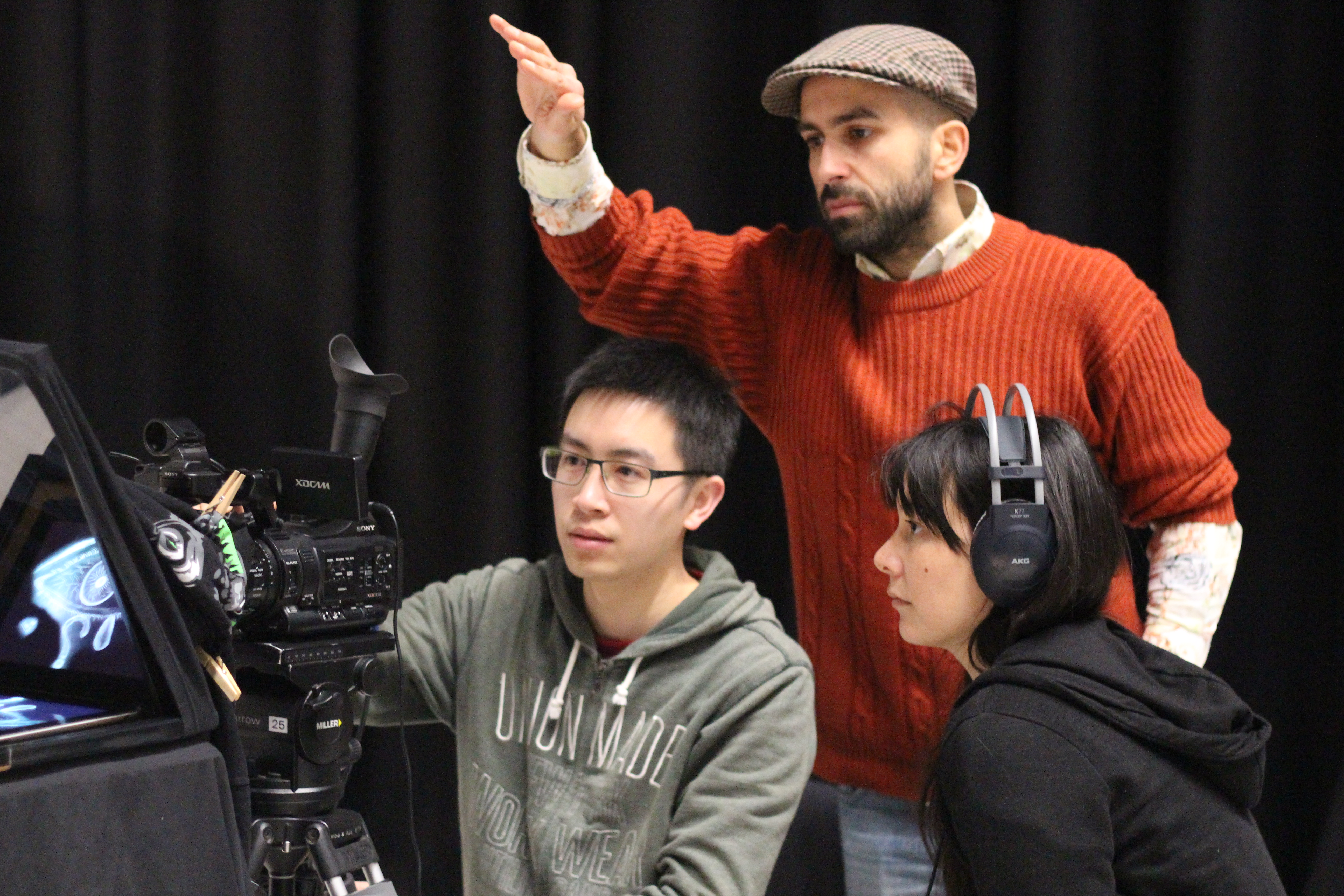Meet Charby Ibrahim, Master of Film and Television (Documentary) graduate

From teacher to filmmaker, Master of Film and Television (Documentary) graduate Charby Ibrahim is passionate about social justice. He talks about how he’s trying to push creative boundaries of traditional documentary film making, while agitating for social change.
My professional background is in the nonprofit sector. I started out in education, working with young people at-risk, before ever deciding to become a filmmaker. I did a double degree at the University of Melbourne in Education and Arts, and worked mostly in alternative education, before starting at the juvenile detention center in Parkville – teaching film and radio to young offenders. I think my passion for certain socio-political issues, and my love of the documentary genre, made film the obvious form of activism for me.
Most students in my cohort were quite interested in making films for social impact, while also focusing on the craft of documentary filmmaking and storytelling, myself included. For me, documentary has always been about political and social commentary, while offering a voice to those who are typically silenced, ostracised, or systemically excluded from the conversation. Then of course, there’s always been something about the creative audio-visual elements of film that have excited me. And I’ve tried to experiment with this by using a mix of animation and live action footage, and blurring the boundaries between narrative and documentary traditions. Sound design and music too, play a vital role in my films and are often just as important as visual elements. Hopefully, I’m only just getting started in terms of my creative experimentation, and that excites me no end.
The Jolly Swagman - A film by Charby Ibrahim from Charby Ibrahim on Vimeo.
The feature film I'm working on currently, Life After Juvie, is very much a hybrid documentary. I’m quite fortunate that it has been supported for development by Screen Australia, Film Victoria, the Shark Island Institute, as well as the Documentary Australia Foundation. It will rely on some tried and tested devices like interviews with key participants, but it'll also transcend that, and use a mix of animation styles, archive material, and non-actors in dramatic scripted scenes. It’s all a bit of a head spin at the moment, and I’m pinching myself that these agencies and organisations have chosen to support my films. Screen Australia also funded my last short documentary Bright Lights that was eventually revoiced by Claudia Karvan… who would have thought!
After graduation, I set up a production company called, Marhaba Films. And as a filmmaker of colour, inclusivity and diversity is something that is front and centre when inviting other creatives to collaborate on our films. These are really intentional decisions actually – and certainly all the creative roles in Life After Juvie have thus far been filled almost exclusively by people of colour and women. We’re at a tipping point in this industry, and certainly we’ve come a long way in terms of celebrating emerging filmmakers of color, women, LGBTQI+ identifying filmmakers, filmmakers with diverse abilities, but there’s still a very long way to go… so my company is super keen to demonstrate best practice in this area.
I'd encourage others coming out of film school to really seek out professional opportunities that they feel will help them grow. Those opportunities might not always be the obvious ones either. Some common questions I get, which are exactly the ones I had after graduation were – how do we actually transition from film school into the industry proper? How do we get our next film off the ground? How do we ensure that the opportunities will be useful ones, and not exploitative? And where do you even start? There are so many industry folk out there who are willing to offer their time to just sit down and have a genuine conversation with you, and offer up a bit of advice… you just have to ask. But I really think that that has to be a two-way street. You have to be generous with your time as well, because I think there's always somebody who you stand to learn from, and certainly there's always people who might learn from what you've experienced too… from your epic fails as well as wins.
Find out more about studying film at the VCA. Applications for 2020 entry into the Master of Film and Television close 15 October. Apply Now.